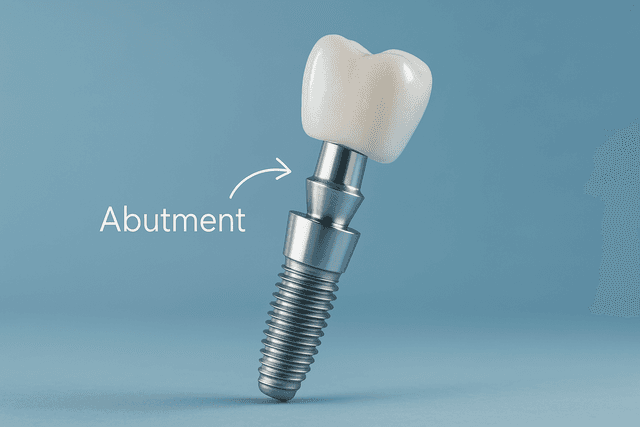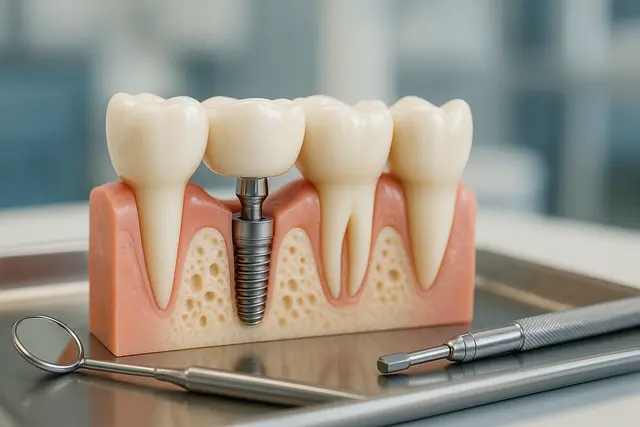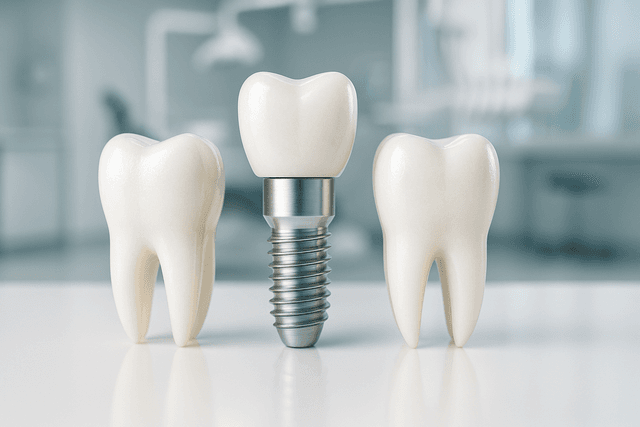Prosthodontics
4 min read
Aug 04, 2025
Root Canal Crown Cost Explained: Factors That Affect the Price
When you're facing a root canal, the last thing you want is confusion about the cost. Between the procedure itself and the crown that often follows, prices can vary widely. Understanding what factors influence the total expense can help you make informed decisions and avoid unexpected surprises at the dentist’s office.

No one wakes up thinking, “Today’s a great day for a root canal.” But if you're dealing with sharp tooth pain or serious decay, you might not have a choice. A root canal is often the superhero move that saves your natural tooth from the villain known as diseased pulp.
So what actually is a root canal? It's a dental procedure that cleans out the infected pulp inside your tooth, disinfects the area, and seals it to prevent future issues. After that, most teeth will need a crown for protection and long-term strength. This duo, the root canal and crown, is what truly restores your bite.
But how much does a root canal actually cost? And what’s up with that crown cost on top? Let’s talk numbers.
Root Canal Cost and Why It’s Not One-Size-Fits-All
When it comes to root canal cost, the truth is it typically costs anywhere from $700 to $1,500 or more. That’s for the root canal procedure alone, and not including the dental crown.
Why such a wide range? Several things influence the cost, like:
The location of the tooth (front teeth are easier, molars are more work)
The complexity of the procedure
Whether you’re seeing a general dentist or an endodontist
And of course, whether you have dental insurance
In short, the cost of a root canal isn’t just about what happens in the chair, it’s also about who performs root canals and where.
Root Canal Treatment and the Crown That Follows
Once your root canal treatment is complete, your tooth will be cleaned up and functional, but not quite ready for everyday chewing, especially if it’s a molar. That’s where a crown comes in.
A dental crown is often needed to cap and protect the treated tooth. The crown cost can range from $800 to $2,500, depending on the material (porcelain, gold, zirconia, or a combo), where you live, and what your dental insurance plans cover.
Yup, you read that right. Your total cost of root canal treatment could hit $3,000 with the crown included, more if you're at a high-end dental office in a big city.
How Much Does a Root Canal with Insurance Actually Cost?
If you have dental insurance, there’s good news: many plans do help reduce the cost. Depending on your insurance plan, you might pay 50% or less of the average cost.
However, dental insurance plans vary a lot. Some plans only cover basic dental procedures, while others kick in for major ones like root canal therapy and dental crowns. Your out-of-pocket cost depends on:
Whether your deductible has been met
What your insurance cover includes
If your insurance plan covers major dental work
Whether your dental insurance plans cover both the root canal and the crown
Here’s a tip: check with your dental professional before starting treatment so you’re not hit with surprise bills.
Root Canal Cost Without Insurance
Now let’s talk about the folks without dental insurance. If that’s you, the price tag can be painful.
The cost of root canals without insurance typically lands between $1,000 and $2,500 for the root canal and crown combo. That’s why many dental offices offer:
Payment plans
Dental savings plans
Suggestions to check with a local dental school for reduced fees
And if the cost of a crown is too high up front, your dentist might recommend a temporary fix like a filling or crown until you’re ready.
Average Cost of a Root Canal on Front Teeth vs. Molars
Here’s where the location of the tooth really matters.
Front teeth: Easier access, single canal, less time = less money (around $700–$1,000)
Molars: Tougher access, multiple canals, longer chair time = more money (up to $1,500 or more)
The average root canal cost also increases if your case requires advanced tools or extra visits.
Tooth Extraction vs. Root Canal Treatment
Some people wonder, “Should I just pull the tooth instead?”
It might seem cheaper at first. A simple tooth extraction might only cost $150–$300. But here’s the kicker: missing a tooth often leads to dental implants, bridges, or shifting teeth, all of which rack up even more dental costs down the road.
So while getting a root canal seems pricey now, it might actually reduce the cost of future repairs. Saving your natural tooth is often the smarter long-term investment.
What Affects the Final Cost of Root Canal and Crown
Are you still unsure about what affects your bill amount? Here are a few more things that influence the cost:
Whether your dental coverage kicks in
If your insurance plan has waiting periods or annual caps
The dental techniques used (some high-tech tools cost more)
The skills of your dental team
Whether you're treated by a general dentist or an endodontist
Every patient is different. One tooth needing a root canal might be straightforward, while another could be more complex and time-consuming.
How Much Does a Root Canal and Crown Cost Without Insurance?
Without insurance, the combined cost of a root canal and crown typically ranges from $1,000 to $2,500 or more. Factors like the tooth’s location, procedure complexity, and materials used for the crown all influence the final price.
Why Do You Need a Crown After a Root Canal?
A crown is needed after a root canal to protect the weakened tooth structure. Once the infected pulp is removed, the tooth becomes more brittle, especially in molars. A crown restores strength, supports chewing function, and helps prevent future damage.
What Factors Affect the Total Cost of a Root Canal and Crown?
The final cost depends on multiple variables, including the type of tooth (front vs. molar), the dentist’s specialty, materials used, geographic location, and whether you need sedation or additional visits. Dental insurance can also greatly impact what you pay out-of-pocket.
Is It Cheaper to Get a Tooth Pulled Instead of a Root Canal?
Tooth extraction is cheaper upfront, usually $150–$300, but it may lead to higher costs later. Missing teeth can cause shifting, chewing issues, and often require replacements like bridges or implants, making root canal treatment a better long-term investment.
Read Next
Related Posts

Prosthodontics
Implant Abutment Explained: What It Is and Why It Matters
Dental implants have revolutionized the way we restore missing teeth, but there's more to them than just the visible crown. One often-overlooked component, the implant abutment, plays a crucial role in both the function and appearance of the final result. Understanding what it is and why it matters can make all the difference in your implant journey.
4 min read
Oct 10, 2025

Prosthodontics
Pros and Cons of Implant Retained Bridges: A Simple, Honest Overview
Missing teeth can affect more than just your smile, they can impact your confidence, speech, and even how you eat. With so many options out there, it’s easy to feel lost in dental jargon and marketing buzzwords. That’s why we’re breaking down implant retained bridges in plain English, highlighting the pros and cons so you can make an informed choice without the fluff.
6 min read
Oct 10, 2025

Prosthodontics
Implant Crown Lifespan: What to Expect
Getting a dental implant crown is a big step toward restoring both function and confidence in your smile. But like any dental work, it's natural to wonder how long it will actually hold up. From materials and maintenance to daily habits, several factors play a role in how long your implant crown will last.
4 min read
Oct 10, 2025
Don’t have time to research every dentist around you?
See why 30k+ patients trusted us